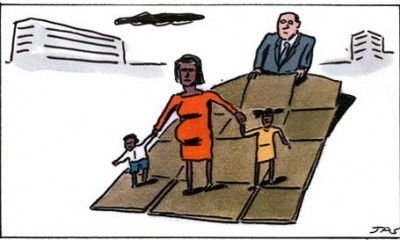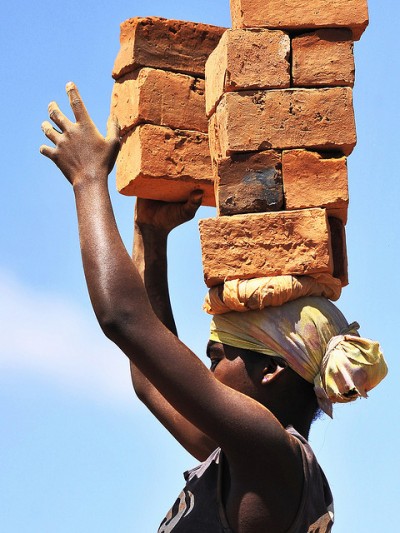Engender blog
Guest blog: Indyref and violence against women (Indyref Thursday #4)

By Marsha Scott
In the run-up to our event on 'gender equality, the referendum and beyond', we'll be publishing a weekly blog to correspond with our 'Scotland's futures' briefing papers series.This week, guest blogger Marsha Scott considers implications in terms of violence against women.
Violence against women (VAW) is one of the feminist “Big 3”, alongside women’s poverty and women’s power deficit in public life. The policy context for VAW is perhaps the most devolved, the most significant exception being the no-recourse-to-public-funds rule, which prohibits provision of public assistance for women with uncertain immigration status. It is hard to imagine a post-referendum government in London in the near future that will either change this rule or allow Scotland to make its own rules about eligibility for public benefit. Scottish administrations have demonstrated some political interest in redressing the no-recourse problem in the face of constraints under the Scotland Act, and one could argue that attitudes toward immigrants and immigration policy are likely to support an improved prospect should Scotland vote yes in the referendum.
Guest blog: Childcare provision and the independence referendum (Indyref Thursday #3)
By Craig McAngus
This guest blog by Craig McAngus was originally posted on the Scottish Centre on Constitutional Change website. He is currently researching the implications of constitutional change for gender equality.
The 18th of September is fast approaching and the two main campaigns are stepping up their efforts to try and shore up their own vote whilst appealing to the undecided. One particular group that has been catching the attention of both the psephologists and the campaigns alike is women. Still more likely to be undecided, the women of Scotland have become a key group of voters that may yet hold the key to the result we wake up to (or stay up for) on the 19th of September. The Scottish Government has been accused by its opponents of trying to lure women into voting Yes with policy ‘bribes’ such as extended childcare and alleged ‘token gestures’ like bringing more women, namely Shona Robison and Angela Constance, into the cabinet. However, advocates of Yes argue that Scotland can become a more gender equal place after independence through measures such as ‘transformational’ childcare. However, little is known about what voters think about these issues.
Guest blog: Indyref, women and poverty (Indyref Thursday #2)

By Angela O'Hagan
In the run-up to our event on 'gender equality, the referendum and beyond', we'll be publishing a weekly blog to correspond with our 'Scotland's futures' briefing papers series. This week, guest blogger Angela O'Hagan considers implications in terms of women's poverty.
Will women be poorer in a post-Referendum Scotland? Will independence or devo-max put a stop to the onward march of women’s - and men’s - poverty in Scotland?
As ever, the answers are in part up to us and the decisions we make on 18 September and the pressure we put on politicians now and after the vote, to act for change and for the alternatives that are possible.
Indyref, women and the labour market (Indyref Thursday #1)

In the run-up to our event on 'gender equality, the referendum and beyond', we'll be publishing a weekly blog to correspond with our 'Scotland's futures' briefing papers series. First up is women and the labour market by Engender's Director, Emma Ritch.
Women in Scotland experience a vastly different workplace from men. Women work in different jobs, earn lower wages, experience the bulk of sexual harassment, have a precarious place in male-dominated organisations and sectors, and are vanishingly unlikely to end their careers around a boardroom table.
The scale of the differences is so enormous as to be almost invisible: it fills the vision of women as they grapple with the everyday ordinariness of balancing work, friends, and family life. The inequalities have developed a different veneer since the 1950s, but many of the changes have been superficial. Some of the key indicators of inequality, like who works part-time, have barely flickered in generations. In some places in Scotland, we’re even recreating the typing pool, as public bodies make ‘efficiency savings’.
Getting to grips with women and work can be a technical minefield, with overlapping policies, sets of statistics, and legal structures in play. So what should we all be thinking about when we cast our ballots on 18 September?
Guest post: Indyref - why I'm voting No, thanks

By Talat Yaqoob
What does it mean to be a feminist and be involved in the independence referendum? Well, much like all avenues when you have had the feminist light switched on, you view it through the lens of social justice for women. It is easy for the independence referendum to become all things to all people, the reality of course being that on the ballot paper there is not a question asking whether you want action for women yes or no? It is asking only the question; should Scotland be independent? But naturally for campaigners across Scotland, we want to know whether a yes or a no can get us closer to our campaign aims and a positive future for Scotland. For me, that positive future comes from remaining part of the United Kingdom – and put simply, for the problem of inequality, the solution is collectivism.
Across the UK; every week 2 women die at the hands of a current or ex partner, every 10 minutes in Scotland a woman reports a domestic abuse incident and there is a painfully low representation of women in our parliaments. These are not Scotland specific issues nor are these issue which exist only in the rest of the UK. These statistics and these cases exist across the United Kingdom and I firmly believe the solution is one that will take campaigning efforts and ambition from across the United Kingdom.
Downloads
 Engender Briefing: Pension Credit Entitlement Changes
From 15 May 2019, new changes will be introduced which will require couples where one partner has reached state pension age and one has not (‘mixed age couples’) to claim universal credit (UC) instead of Pension Credit.
Engender Briefing: Pension Credit Entitlement Changes
From 15 May 2019, new changes will be introduced which will require couples where one partner has reached state pension age and one has not (‘mixed age couples’) to claim universal credit (UC) instead of Pension Credit.
 Engender Parliamentary Briefing: Condemnation of Misogyny, Racism, Harassment and Sexism
Engender welcomes this Scottish Parliament Debate on Condemnation of Misogyny, Racism, Harassment and Sexism and the opportunity to raise awareness of the ways in which women in Scotland’s inequality contributes to gender-based violence.
Engender Parliamentary Briefing: Condemnation of Misogyny, Racism, Harassment and Sexism
Engender welcomes this Scottish Parliament Debate on Condemnation of Misogyny, Racism, Harassment and Sexism and the opportunity to raise awareness of the ways in which women in Scotland’s inequality contributes to gender-based violence.
 Gender Matters in Social Security: Individual Payments of Universal Credit
A paper calling on the Scottish Government to automatically split payments of Universal Credit between couples, once this power is devolved to the Scottish Parliament.
Gender Matters in Social Security: Individual Payments of Universal Credit
A paper calling on the Scottish Government to automatically split payments of Universal Credit between couples, once this power is devolved to the Scottish Parliament.
 Gender Matters Manifesto: Twenty for 2016
This manifesto sets out measures that, with political will, can be taken over the next parliamentary term in pursuit of these goals.
Gender Matters Manifesto: Twenty for 2016
This manifesto sets out measures that, with political will, can be taken over the next parliamentary term in pursuit of these goals.
 Scottish NGO Briefing for UN Special Rapporteur on Violence Against Women
Joint briefing paper for the UN Rapporteur on Violence Against Women.
Scottish NGO Briefing for UN Special Rapporteur on Violence Against Women
Joint briefing paper for the UN Rapporteur on Violence Against Women.

Newsletter
Sign up to receive our newsletter here:
Sign up to our mailing list
Receive key feminist updates direct to your inbox: